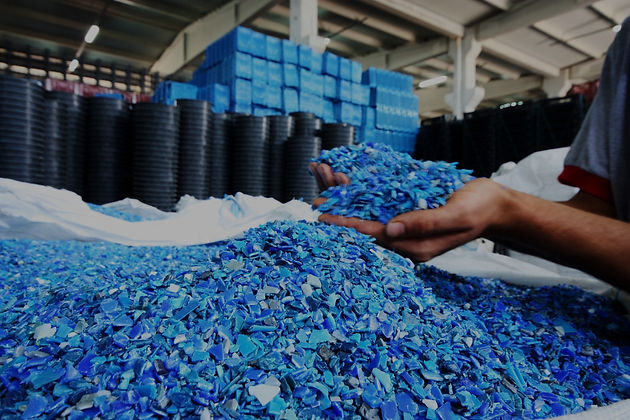
SERVICES

Material Sorting and Segregation
Material Sorting and Segregation are vital processes in waste management and recycling. These practices involve categorizing and separating various types of materials, such as papers, plastics, glass, and metals, to facilitate efficient recycling and minimize environmental impact. Sorting ensures that materials are processed correctly, enhancing the quality of recycled products and reducing contamination. Advanced technologies like conveyor belts, optical scanners and manual labour are often employed to achieve precise segregation. Effective material sorting not only conserves resources but also reduces landfill waste and supports a more sustainable and eco-friendly approach to managing our planet's resources.

Plastic Recycling
Solaris Recycling is a trailblazing organization tackling plastic waste head-on with its innovative recycling service. Our state-of-the-art facility efficiently processes various plastic materials, from PET bottles to HDPE containers, championing a sustainable future. Solaris Recycling is distinguished by its eco-conscious approach, prioritizing energy efficiency and emissions reduction in the recycling process, even using recyclable packaging. The organization actively engages communities through educational programs and campaigns, fostering responsible plastic disposal habits. By choosing Solaris Recycling, individuals and businesses contribute to the fight against plastic pollution, diverting waste from landfills, conserving resources and promoting a cleaner environment. In a world grappling with plastic waste, Solaris Recycling shines as a beacon of environmental responsibility and innovation.

Material Recovery Facility (MRF)
A Material Recovery Facility (MRF) is a crucial component of modern Waste Management Systems. It serves as a central sorting hub where recyclable materials are collected, processed, and prepared for recycling or reuse. MRFs play a pivotal role in diverting waste from landfills, conserving resources, and reducing environmental impact. MRF operations typically involve conveyor belts, screens, and automated machinery to sort and separate materials like papers, cardboards, glass, plastics, and metals. Skilled workers oversee the process, ensuring quality control. Once sorted, these materials are baled or packaged for shipment to recycling facilities, where they are transformed into new products. MRFs contribute significantly to sustainability efforts, promoting a circular economy by giving discarded materials a second life. They also reduce the energy and raw materials required for manufacturing new products. As a vital link in the recycling chain, MRFs play a pivotal role in promoting environmental responsibility and resource conservation.





